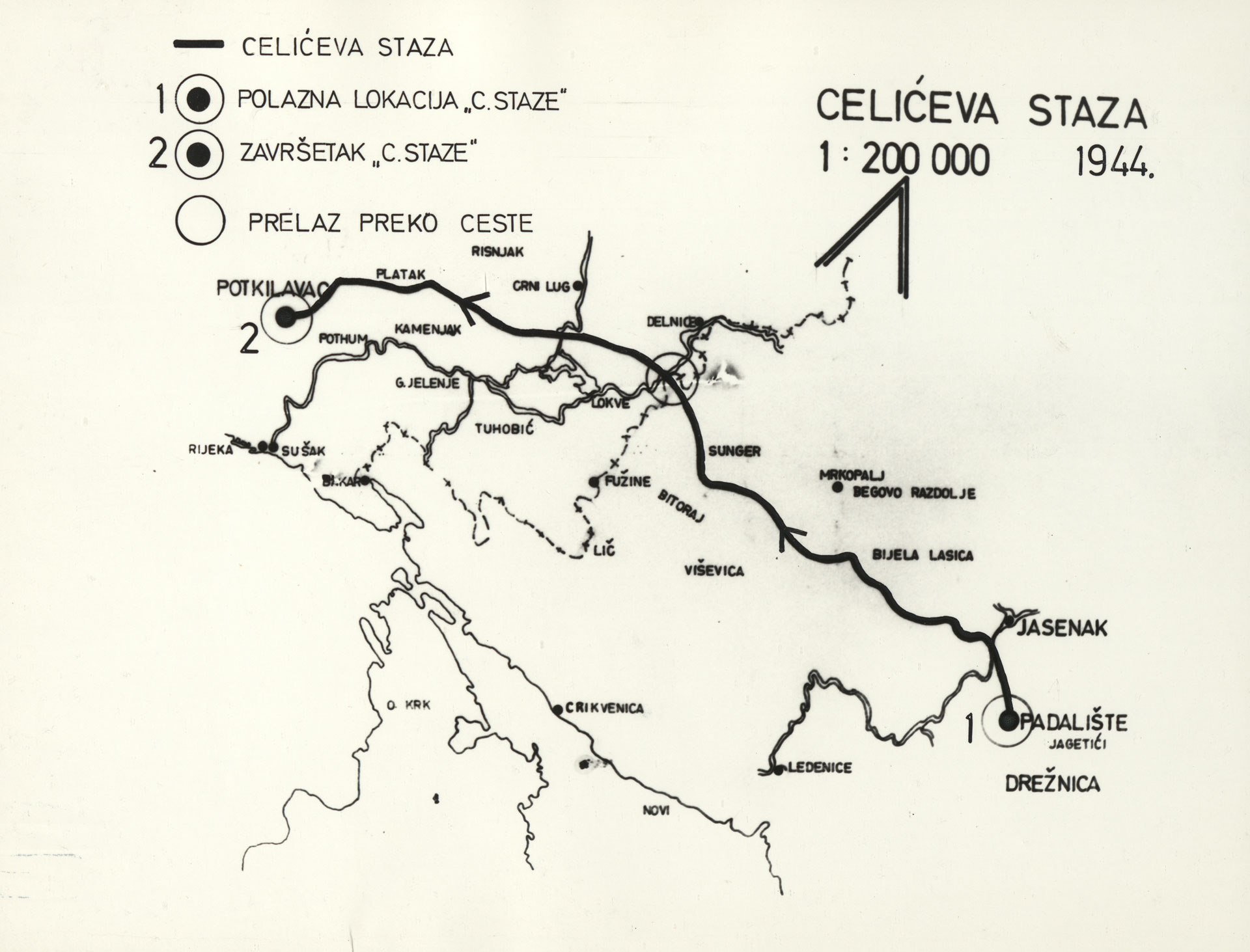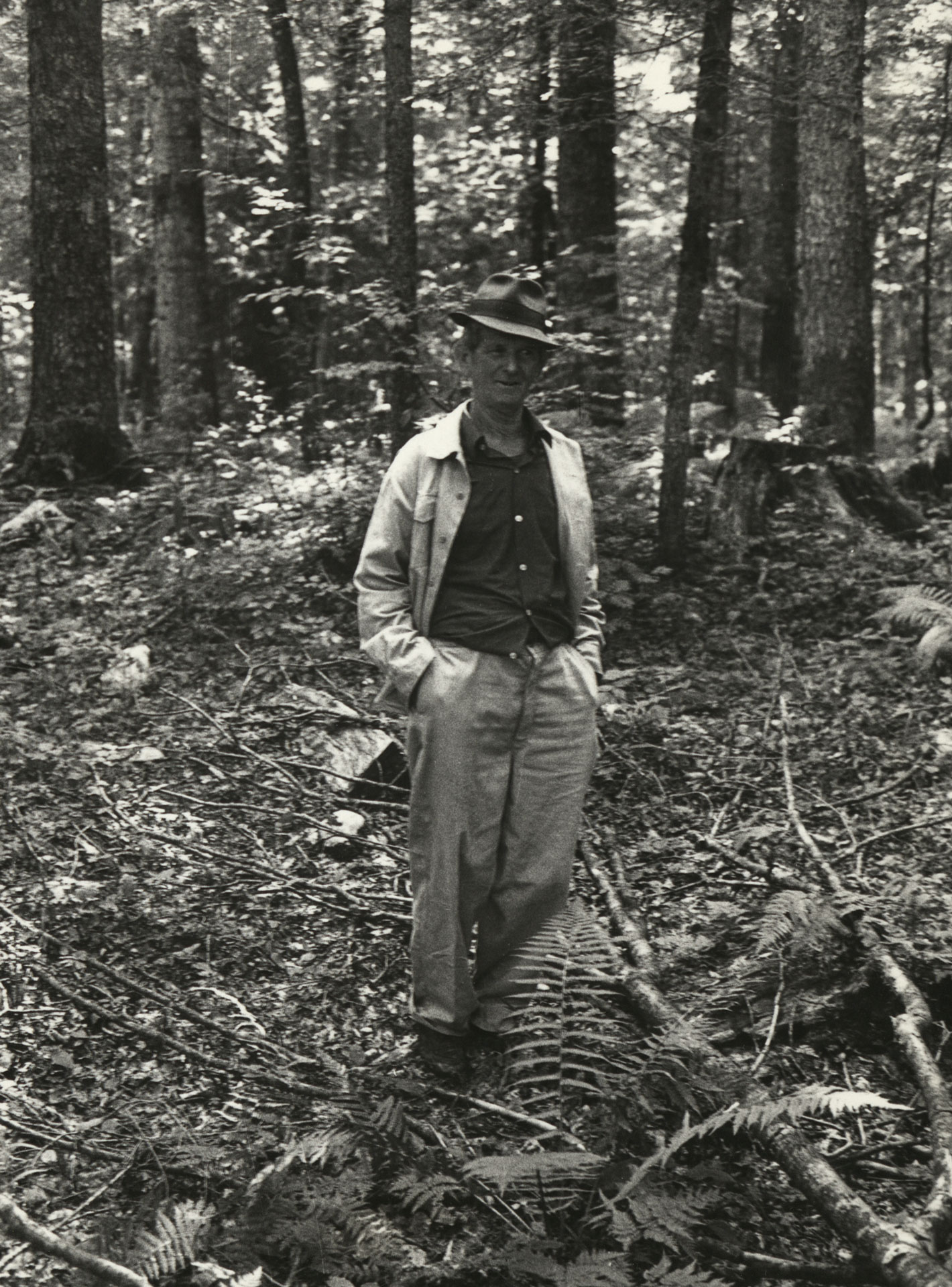On the trails of resistance: the story of the partisan courier Roman Pilčić–Celić
During the field analysis of sites from the Second World War in Primorje and Gorski Kotar, conservator Katica Brusić found that almost every settlement had its “illegal trails”. Through her field research conducted during the 1970s and 80s, Brusić understood that the roads and paths of couriers had different purposes. Couriers led the leaders of the uprising, military units, civilians, the wounded, delivered the press, directives and transported livestock. “They exposed their lives,” wrote Brusić, “to the greatest dangers. Their dexterity in orientation is amazing, because they did their courier service mostly at night.”
Among the testimonies of the partisan couriers she recorded in the field, Brusić often referred to that of Roman Pilčić–Celić, born in 1910 in the village Podkilavci near Grobnik: “Due to poverty, I was forced to leave primary school and as a boy of 8 I started working like a shepherd tending other people’s sheep. I didn’t have the opportunity to learn the letters, I learned the impassable mountain roads and paths that I walked on barefoot, so they were well etched in my brain.” His brutal and rebellious life path led him to join the partisans in March 1942. Here, the knowledge and skills of an illiterate peasant, acquired through hard labour in childhood, become a decisive factor in ensuring resistance in the wider area of Gorski Kotar and Primorje. “As a courier for the Headquarters of the Second NOP Detachment during the summer and autumn [1942], I took many civilians from Kastav, Grobnik and Sušak towards Drežnica. I walked through the forest area from Drežnica to the mountains of Hrvatsko Primorje and Gorski Kotar hundreds of times carrying directives from the Headquarters, letters and press. During 1942, I visited almost all military-political and civilian camps. Since I knew the impassable roads and paths well, I never fell into the ambush of the occupiers.”
With Romano’s guidance, Brusić – among other authentic sites – managed to document the path that he used to evacuate civilians to Drežnica. “During our joint hike while recording the Partisan camps, I observed his rhythm of movement. Celić doesn’t walk; he flutters above the paths.”
***
The dense and intertwined network of secret partisan communications and the role of couriers in transferring messages and ensuring the safe movement of partisans and civilians through the forest roads was crucial for the People’s Liberation Struggle in Yugoslavia, especially in the first phase of organised resistance. To understand the significance of the courier service, it is important to recall the limited technological conditions of communication during the occupation, almost unimaginable from the perspective of modern users of mobile phones, satellite maps and social networks. The Ustasha-fascist propaganda apparatus had complete control over the means of communication and public information. Access to information and mutual communication of those who did not agree with the fascist (occupation) regime was reduced to personal contacts, coded correspondence, secret distribution of leaflets, and sporadic operation of illegal radio connections. Resistance forces moved away from the centres of power, into uninhabited and rural areas, where the wilderness became an essential ally of the resistance. The key to this alliance were individuals “on the ground” who could find safe locations and routes of movement and who possessed orientation skills for navigating natural expanses.
Already in the historiography of the socialist period, the role of the courier was marginalised, and today it is almost completely forgotten or trivialised. Due to the secrecy of their activities, the names and biographies of couriers, many of whom died zealously performing their tasks, have been forgotten or are found in rare footnotes in historical studies.
Sanja Horvatinčić



